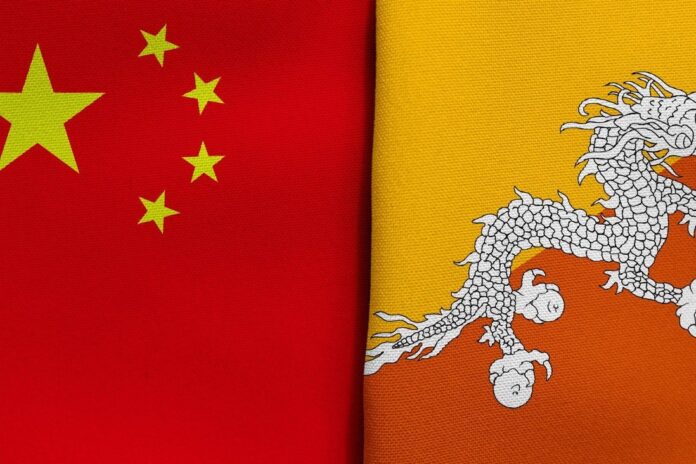(TibetanReview.net, Oct18’21) – China has accused India of causing a deadlock in the settlement of its dispute involving occupied Tibet’s border with Bhutan and contended that a deal was possible without New Delhi’s intervention. China has also said Oct 15 that the Oct 14 signing of the Memorandum of Understanding (MoU) on a “three-step roadmap” to expedite negotiations to resolve the boundary dispute will pave way for establishing diplomatic relations with Bhutan.
By blaming India, China may be piling pressure on Bhutan to accept its difficult territorial exchange and diplomatic relations offer through the signing of the MoU.
China’s Assistant Foreign Minister Wu Jianghao, who signed the pact, said he believes that the MoU will make a meaningful contribution to speeding up the negotiation on demarcation and promoting the process of establishing diplomatic ties between the two countries, reported theweek.in Oct 17.
Bhutan shares an over 400-km long border with Chinese occupied Tibet, and the two countries have held 24 rounds of boundary talks in a bid to resolve the border dispute. They do not have diplomatic relations, apparently on account of India, but maintain contacts through periodic visits by officials.
On Jun 20, 2020, China raised the level and ambit of its dispute with Bhutan by suddenly laying a new territorial claim: the Sakteng wildlife sanctuary in eastern Bhutan, adjoining the Indian state of Arunachal Pradesh.
One major Indian concern is China’s 1996 “package deal” that offered to exchange territory in central Bhutan for Doklam, located dangerously close to India’s Siliguri Corridor. China reiterated this land swap offer last year, noted the timesofindia.com Oct 15.
***
China’s official globaltimes.cn Oct 15 cited Chinese experts as saying the signing of the MoU showed Bhutan’s willingness to manage border affairs independently, rebutting India’s claims of the “China threat”.
“They noted that the territorial disputes between China and Bhutan are not significant but have not been resolved because India stands in the way as it has a special influence on Bhutan’s culture, defense and diplomacy,” the report said.
The English website China’s national broadcaster CGTN also said in a commentary: “At a time when India is pursuing hegemony by coercion over its neighbours, the MoU is a victory for the region. It demonstrates that respectable, bilateral diplomacy has triumphed over New Delhi’s attempts to dominate, control and bully its neighbours, showing India has little ability to regionally isolate China.”
Despite expressing optimism, a speedy settlement of the border dispute can be particularly difficult for Bhutan. “As far as I know, the China-Bhutan boundary issue was almost resolved 20 years ago. The two sides have a common understanding on how to sign the final agreement. But for Bhutan, it is difficult because of the India factor. That is the same reason why China and Bhutan have not signed the agreement,” the hindustantimes.com Oct 16 quoted Lin Minwang, assistant dean at the Institute of International Studies at Shanghai’s Fudan University, as saying.
It is hard to imagine Bhutan conceding Doklam to enable Chinese troops to be stationed by one of India’s most strategically vulnerable border spot.
The big question is whether Bhutan will accede on one or both of the territory exchange and the diplomatic relations offer to China’s satisfaction. And then there is the question how India, which has a particularly special relationship with Bhutan, but not so friendly one with China, will react to any such development.






